<< Previous | Displaying results 151-160 of 1017 for "" | Next >>
The Nuremberg trials were an early experiment in simultaneous translation. Learn about the principles and technology involved in translating the trial proceedings.
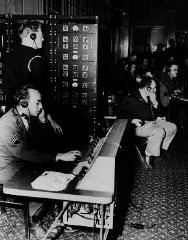
Efforts to hold some of the remaining perpetrators of crimes of the Holocaust accountable continue today, raising the question: is it ever too late to seek justice?
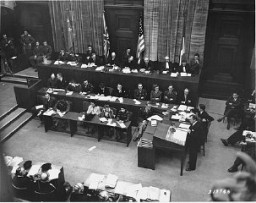
In the decades following the Holocaust, the search for perpetrators continued. As they reach the end of their lives, the vast majority of Nazi offenders have escaped punishment.
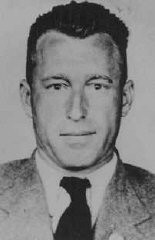
Holocaust survivor Simon Wiesenthal dedicated his life to raising public awareness of the need to hunt and prosecute Nazis who had evaded justice.
Thomas Buergenthal's experiences as Holocaust survivor and international judge shape his unique perspective on judging war crimes today and justice after genocide.
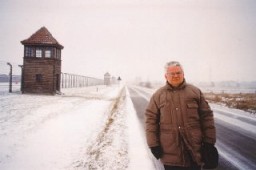
From 2003 to 2005, an estimated 200,000 civilians died as a result of a campaign of violence in Darfur by the Sudanese government. In 2004, the US Secretary of State called this violence a genocide.
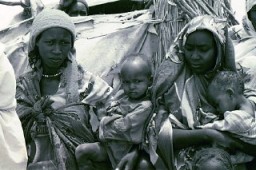
Explore Erika Eckstut's biography and learn about the difficulties and dangers she faced in the Czernowitz ghetto.
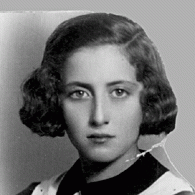
Explore Gideon Frieder’s biography and learn about his experiences as a child during the Holocaust in Slovakia.
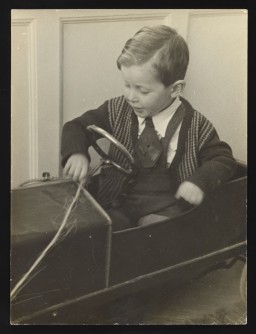
Explore Manya Friedmann’s biography and listen to her describe her experiences following the liberation of Auschwitz.
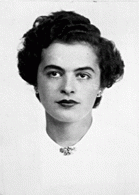
The Nazi regime’s Nuremberg Race Laws of September 1935 made Jews legally different from their non-Jewish neighbors. The laws were the foundation for future antisemitic measures .
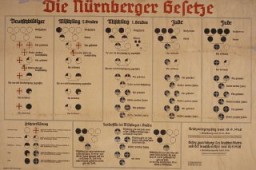
We would like to thank Crown Family Philanthropies, Abe and Ida Cooper Foundation, the Claims Conference, EVZ, and BMF for supporting the ongoing work to create content and resources for the Holocaust Encyclopedia. View the list of donor acknowledgement.